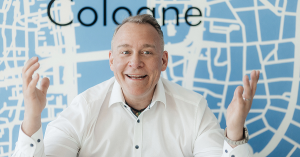School systems, particularly in Eastern and Southeast Europe, have well-known structural vulnerabilities, such as underpayment of teachers, outdated curriculums, and rigidity in teaching methods. An interrelated big gap in the system is the lack of focus on developing human skills, in addition to knowledge building. This gap is being seized by Morphoses, a startup founded by a Greek team, offering live online classes aimed at soft skills development in children, as well as professionals.
“Combining the knowledge that comes from personal experience and the passion of creating a more empathetic, human, democratic version of reality, we’ve created a team fighting for an accessible, self-oriented, open-minded education where kids embrace diversity”, Anna Natsvlishvili, the Greek co-founder and CEO of Morphoses shares in a candid interview for The Recursive.
The team includes Maria Kantani, specialized in Applied Cognitive & Developmental Psychology, former primary school teacher, and currently the Head of Research and Development.
Sometimes, the lack of soft skills surfaces in our experiences at school, in the bullying and rejection of classmates, or the lack of acknowledgment of our unique traits from educators.
“People that end up acting in a hostile way are lacking human skills. And this lack of human skills has been highly correlated to low levels of life satisfaction levels, and even mental health issues such as depression and anxiety. Usually, people with poor social skills experience high levels of anxiety and loneliness, starting at young ages,” Vasiliki (Ilia) Tzortzopoulou, co-founder and COO added.
With the goal of turning schools into the “happy place” of students, Morphoses works with educational institutions by developing educational programs, holding online classes in a small-group format, and offering training for the reskilling of teachers. They also work with employers, providing online classes that aim to support working parents and caregivers with better balancing the pressures of work and home.
Elsewhere in Greece, another edtech player focuses on enhancing skills outside of traditional education. Lithuanian-based Memby provides online tutorship to high school students, with focus on enhancing student engagement beyond the classroom, and unlocking future professional opportunities.
Next, explore the interview with Anna and Ilia about the importance of soft skills development, how they built an entrepreneur-driven company, and insights for the edtech sector in SEE.
The Recursive: Why is soft skills development, which is at the core of your mission, important, and how can it complement traditional education?
Anna Natsvlishvili: Cultivating human skills, especially at an age when one’s personality and habits are still shaping, can be a real game-changer. Encompassing curiosity, inquisitiveness, creativity, adaptability, and resilience, as well as conferring the ability to face, overcome, and learn from failure are skills that we all possess by nature. However, we let them fade away and focus our efforts on what traditional education is focused on: hard skills. Letting human skills fade means letting go of our innate means to consciously choose and act using empathy, critical thinking, and creativity.
Would you willingly leave the skills that make you unique behind and focus on learning history facts by heart?
Human skills give us the ability to create a better future, a future including a society of people that are able to acknowledge what is in their minds and hearts, as well as what and who is around them, and act accordingly. These are the skills that make humans unique, unpredictable, and irreplaceable in an era where machines’ digitalization marks the takeover of hard skills. The skills that allow us to create new paths where no one has ever walked before.
What has been the company’s traction so far?
Anna Natsvlishvili: We started with sales early on. At Morphoses, we believe customer validation is the most critical part of a business. Before launching the MVP of Morphoses platform, we started approaching HR Departments and Educational Institutions with the goal to collect valuable feedback and adjust our product and operations accordingly.
So far, we have partnered with HR departments of leading global companies to offer our service as a benefit to the kids of their working parents, as well as with educational institutions to expand their tutoring and provide more to their clients.
Partners are mostly based in Greece and Cyprus, and within the first quarter of 2022 we will expand to the UK market.
How did you fund the business so far, and how do you plan to support future growth?
Anna Natsvlishvili: We’re entrepreneur-driven, and we believe that when you have on your side great entrepreneurs who believe in your team and business, you can pick up their brain, learn from their mistakes and finally speed up your growth. So far, we have received a small amount of funds from angel investors who all are entrepreneurs. Most of them operate in the ed-tech industry but all have excelled in their sector worldwide.
When it comes to VCs, we believe it is not about money. Instead, it is about finding the right partner with whom you share the same culture, mindset, vision, as well as commitment to democratize education, and create a better world with better human beings.
What do you think we need most in the education sector in the SEE region, and how will startups and technology help us get there?
Vasiliki (Ilia) Tzortzopoulou: In our space, COVID-19 brought possibly the most striking disruption in history. We gained the radical shift from the “if” of technology to the “how” of technology. Now, stakeholders involved in education are searching for efficient technologies not only for schools and companies, but also for students and teachers.
As HolonIQ has stated recently, edtech is growing at 16.3% and will grow 2.5x from 2019 to 2025, reaching $404B in total global expenditure. Approximately 90% of edtech unicorns are based in Asia and the USA. We believe that the European market, and especially the SEE, is quite unmatured in the edtech space.
There is a space for innovative models, merging the school with the consumer market, and blending toward technology learning, not limited by the school hours, days, curricula and buildings. This is what democratization means.
We need more experienced investors, executives, and mission-driven entrepreneurs. When we talk about education, we talk about impact. Therefore, schools and educational institutions now need to prepare students for life. The edtech industry has the opportunity to center investments further, utilize technology, and intensify partnerships that will lead the sector towards maturity.
How do you envision the education sector in 5 years from now? Which edtech developments are you most excited about?
Anna Natsvlishvili: During the last decade, we witnessed a significant evolution in edtech, initiated by the booming of MOOCs (Massive Open Online Courses) and on-demand e-learning, from which the receivers used to process a lot of data, with no interaction at all.
For Morphoses, the future is combining fun, engaging, and interactive learning. To grow and flourish, acknowledge and effectively act, we need to be exposed to different experiences, to share activities, and cooperate in creation and learning processes. Combining these aspects with technology, we can provide top-notch educational experiences at range including children and adults.
Education and knowledge have no boundaries, and human connections will always be the heart of education. So, it is clear that the role of the educator in the school and learning community is irreplaceable.
For us, the most exciting part of the future of education is first how open education resources will expand and the permanent status of blended and hybrid learning.
+++Are you interested to learn more about the future of education? See what edtech founders believe to be the 7 core skills of future teachers.+++








